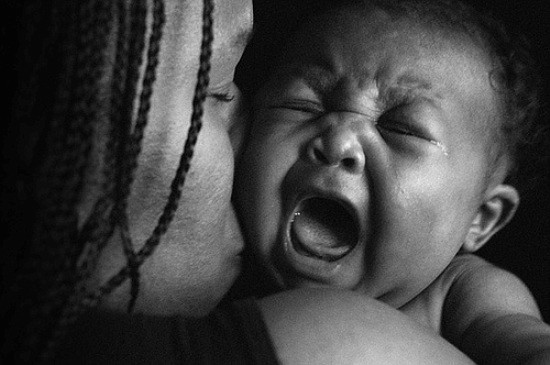Frequency and Severity of Ear Infections in Babies Can Lead to Speech Delay
Though ear aches are common in babies, it is important to note that they can lead to other serious problems. In fact, doctors at Loyola University Health Systems want parents to know that frequent and severe ear infections can lead to delayed speech in infants.
Ear aches for babies is not uncommon but, “If your baby gets three ear infections in six months or four in one year, it may be time to consider ear tubes,” says Andrew Hotaling, pediatric otolaryngologist at Loyola University Health System. “It is unusual for chronic ear aches to lead to temporary hearing loss or even deafness but other health maladies can occur.”
According to the American Academy of Pediatrics, three-fourths of babies will get at least one ear infection before the age of one.
“Hearing disorders can lead to impediments in speech development and other growth milestones,” says Dr. Hotaling. “The ear infections are usually located in the middle ear.”
Pediatricians are usually the first medical practitioners to look at ears for inflammation, middle ear fluid or if the ear-drum doesn’t move well.
Causes for ear infections include several different types of bacteria and viruses.
It is also important to be aware of the frequency and severity of ear infections to prevent speech delay.
Dr. Hotaling offers these indications that your little one may have ear problems:
· Fever
· Irritability
· Poor sleep
· Pulling or tugging at ears
“Teething pain can also hit trigger points in the ears, causing confusion as to the health problem,” says Dr. Hotaling, also a professor at Loyola University Chicago Stritch School of Medicine. “Excessive drooling, swollen gums and excessive mouthing of objects can indicate a new tooth is coming in.”
Dr. Hotaling recommends ear infections be treated with antibiotics in very young children.
“Antibiotics should only be prescribed if the ear infection cannot be cleared without them,” he says. “Incorrectly administering antibiotics can cause further harm.” Dr. Hotaling prefers not to prescribe antibiotics to older children to avoid building up a potential overexposure which can result in unresponsiveness as a medication over time.
When a baby or child has chronic ear infections that do not go away, putting in tubes is usually an appropriate treatment according to Dr. Hotaling.
“It is a common outpatient procedure, requiring anesthesia, and takes less than 15 minutes. The child goes home in less than an hour,” Hotaling said.
Tubes are placed in the ear to offer ventilation to prevent fluid build-up and allow for drainage and ventilation and are usually used short-term, last six months to a year, and usually fall out on their own. Longer-term tubes also are used and removed when appropriate by an otolaryngologist.
If your child has any of the symptoms mentioned above, please consult your doctor.
Latest Stories
- Congressional Black Caucus Condemns Pritzker For Heavy-Handing In Senate Race
- Officiants, Speakers, and Performers are Announced for Reverend Jesse L. Jackson’s Peoples Celebration of Life and Homegoing Services
- Illinois EPA Announces $1.5 Million in Funding Available for Energy Efficiency Upgrades at Public Water Supply Facilities
- As We Prepare to Lay Rev. Jackson to Rest, I’m Thinking About Words That Build Coalitions
- SOUTH CHICAGO RESIDENTS LAUNCH “SOUTHEAST NEIGHBORS FOR QUANTUM” IN SUPPORT OF HISTORIC ILLINOIS QUANTUM AND MICROELECTRONICS PARK DEVELOPMENT
Latest Podcast
MEDICAL POWER OF ATTORNEY


